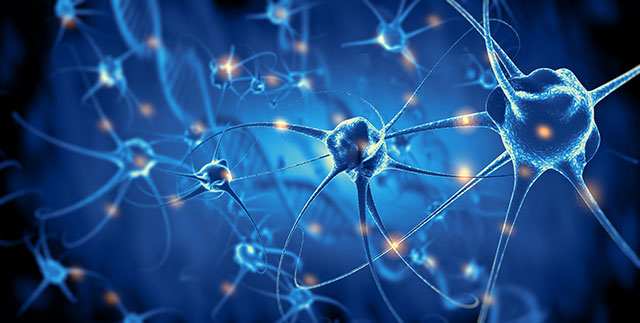Dietary changes found to prevent autoimmune disorders in high-risk individuals
06/21/2022 / By Zoey Sky

Although many cells in the body produce an amino acid called methionine, the immune cells that respond to threats like pathogens do not.
The methionine that fuels specialized immune cells called T-cells must come from the foods you eat. And while methionine is present in most foods, animal products like eggs and meat contain particularly high levels of this amino acid.
According to an animal study published in the journal Cell Metabolism, making dietary changes to significantly reduce dietary levels of methionine can slow the onset and progression of inflammatory and autoimmune disorders like multiple sclerosis (MS) in high-risk individuals.
Understanding autoimmune disorders
Autoimmune disorders occur when your immune system mistakenly attacks and destroys healthy tissue.
If someone has multiple sclerosis (MS), the most common inflammatory disease of the central nervous system, the myelin sheath that protects nerve cells in the brain and spinal cord is wrongly targeted by the immune system.
The resulting damage then impedes messages traveling to and from the brain. This can cause progressively worsening MS symptoms like coordination and balance problems, cognitive decline, muscle weakness and numbness.
There are currently no treatments that can slow or stop MS without increasing the risk of infection or cancer. (Related: Natural strategies to beat multiple sclerosis.)
T-cells, immune response and methionine
In the study, researchers reported that during an immune response, T-cells flood the affected area to help the body fight off pathogens. Findings showed that dietary methionine fuels the process by helping “reprogram” T-cells that respond to the threat so that they replicate more quickly and differentiate into specialized subtypes.
Some of the reprogrammed T-cells cause inflammation, which is a normal part of an immune response. However, prolonged inflammation can also cause damage, like the nerve damage that occurs in someone with MS.
The findings also showed that significantly reducing methionine in the diets of mouse models of MS altered the reprogramming of T-cells. This then helped limit their ability to cause inflammation in the brain and spinal cord.
Another 2019 study from the Locasale Lab at Duke University revealed that reducing methionine could help boost the effects of chemotherapy and radiation therapy.
Russell Jones, the senior author of the study and program leader of Van Andel Institute’s Metabolic and Nutritional Programming, explained that methionine is “critical for a healthy immune system.”
Jones added that based on the study findings, reducing methionine intake among those predisposed to inflammatory and autoimmune disorders like MS can help “dampen the immune cells that cause disease, leading to better outcomes.”
Autoimmune protocol (AIP) diet
The Autoimmune Protocol (AIP) is a diet that can help minimize inflammation, pain and other symptoms caused by autoimmune diseases, such as celiac disease, inflammatory bowel disease (IBD), lupus and rheumatoid arthritis.
Some people who have tried the AIP diet report improvements in the way they feel, along with reductions in common symptoms of autoimmune disorders like fatigue and gut or joint pain.
Like the paleo diet, the AIP diet has a similar list of foods to eat and avoid. The AIP diet consists of two main phases: the elimination phase and the reintroduction phase.
Elimination phase
The elimination phase involves the removal of foods and medications that can cause gut inflammation, imbalances between good and bad bacterial composition in the gut, or an immune response.
In this phase, you should try to avoid foods like dairy, eggs, grains, legumes, nightshade vegetables, nuts and seeds.
You should also avoid alcohol, coffee, food additives, oils, refined and processed sugars, tobacco and certain medications like non-steroidal anti-inflammatory drugs (NSAIDs). Examples of NSAIDs include diclofenac, high-dose aspirin, ibuprofen and naproxen.
The length of the elimination phase varies because it is typically maintained until you experience a noticeable reduction in symptoms. On average, people maintain this phase for 30 to 90 days.
However, you may already notice improvements as early as within the first three weeks.
Reintroduction phase
After you experience improvements in symptoms, you can move on to the reintroduction phase. The avoided foods are gradually reintroduced into your diet one at a time based on your tolerance.
During this phase of the diet, you should try to figure out which foods contribute to your symptoms and reintroduce all foods that don’t cause any symptoms.
Continue to avoid those that do. This ensures that you can still eat a variety of foods while following the diet.
Allowing a period of five to seven days before reintroducing a different food to your diet ensures that you have enough time to notice if any of your symptoms reappear before continuing the reintroduction process.
Once you identify foods that are well-tolerated, add them back into your diet. Continue to avoid those that trigger symptoms.
Note that your food tolerance may change over time. When this happens, repeat the reintroduction test for foods that initially failed the test.
Foods to avoid
If you are following the AIP diet, here are some of the foods that you should avoid:
- Alcohol and coffee
- Dairy
- Eggs
- Food additives and artificial sweeteners
- Grains
- Legumes
- Nightshade vegetables
- Nuts and seeds
- Processed vegetable oils
- Refined or processed sugar
Foods to eat
While you can consume these foods, some protocols further recommend that you moderate your intake.
Depending on the AIP protocol at hand, you can consume small amounts of fruit. You should be fine if your maximum intake is 10 to 40 grams of fructose per day or about one to two portions of fresh fruit.
- Bone broth
- Certain teas (Three to four cups of black and green tea.)
- Fermented, probiotic-rich foods like kimchi, kombucha, pickles, or sauerkraut
- Fresh fruit, in moderation
- Herbs and spices not derived from a seed
- Minimally processed meat like fish, seafood, and wild, grass-fed, or pasture-raised meat
- Minimally processed vegetable oils like avocado, olive, or coconut oil
- Natural sweeteners in moderation
- Tubers
- Vegetables, except for nightshade vegetables and algae
- Vinegars free of added sugars
Follow a balanced diet and try to identify which foods trigger symptoms of your autoimmune disease to reduce any adverse effects.
Watch this video about dietary lifestyle approaches to treating autoimmune dysfunction and disease.
This video is from the CAT channel on Brighteon.com.
More related stories:
Heal autism, depression and autoimmune disorders with a GAPS diet.
How to eliminate the threat of autoimmune disorders safely and naturally.
Sources include:
Submit a correction >>
Tagged Under:
alternative medicine, autoimmune disease, diet, dietary changes, disease treatments, food cures, food is medicine, immune system, inflammation, methionine, natural cures, natural medicine, nutrients, nutrition, organics, prevention, remedies
This article may contain statements that reflect the opinion of the author
RECENT NEWS & ARTICLES
Fasting.News is a fact-based public education website published by Fasting News Features, LLC.
All content copyright © 2018 by Fasting News Features, LLC.
Contact Us with Tips or Corrections
All trademarks, registered trademarks and servicemarks mentioned on this site are the property of their respective owners.




















